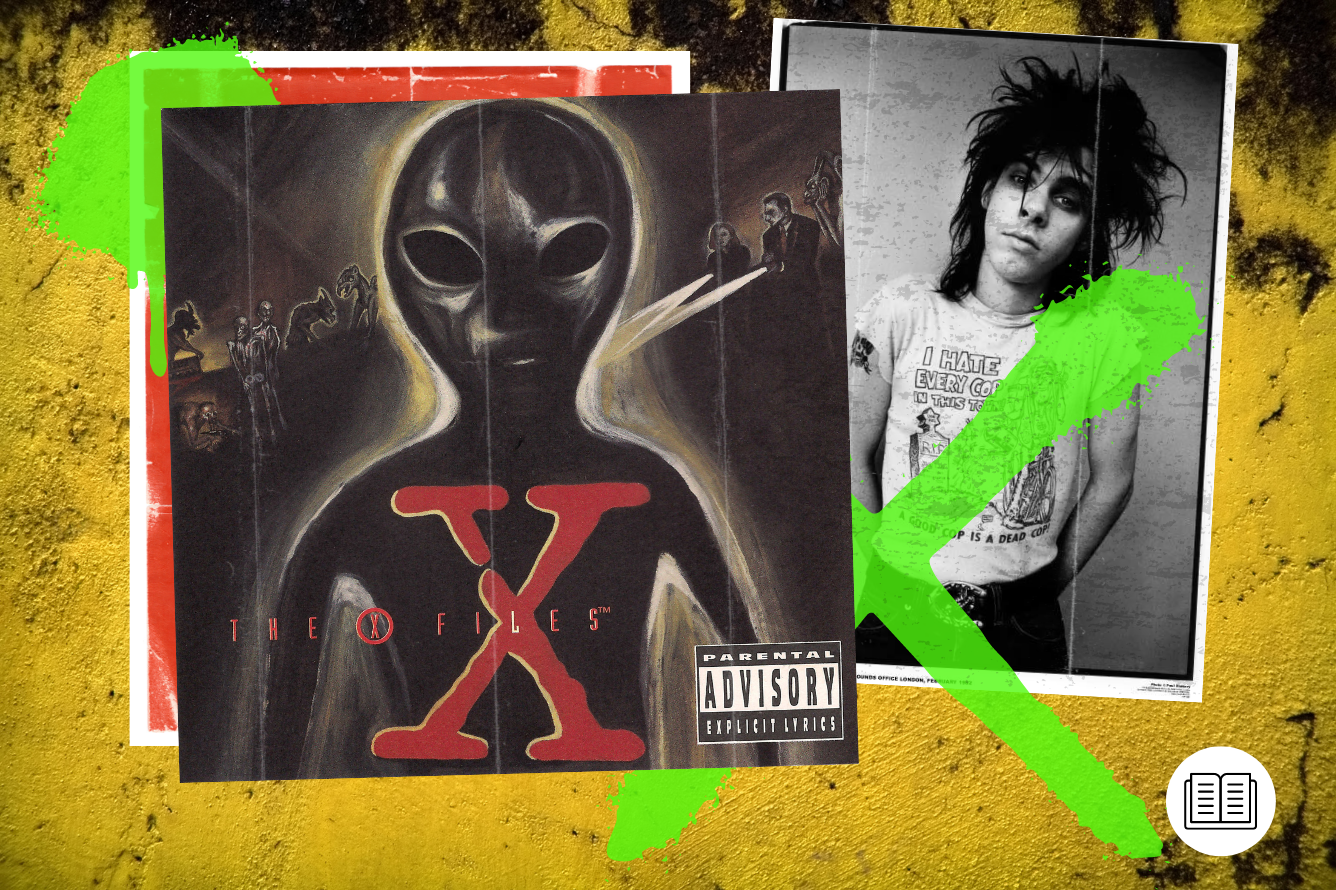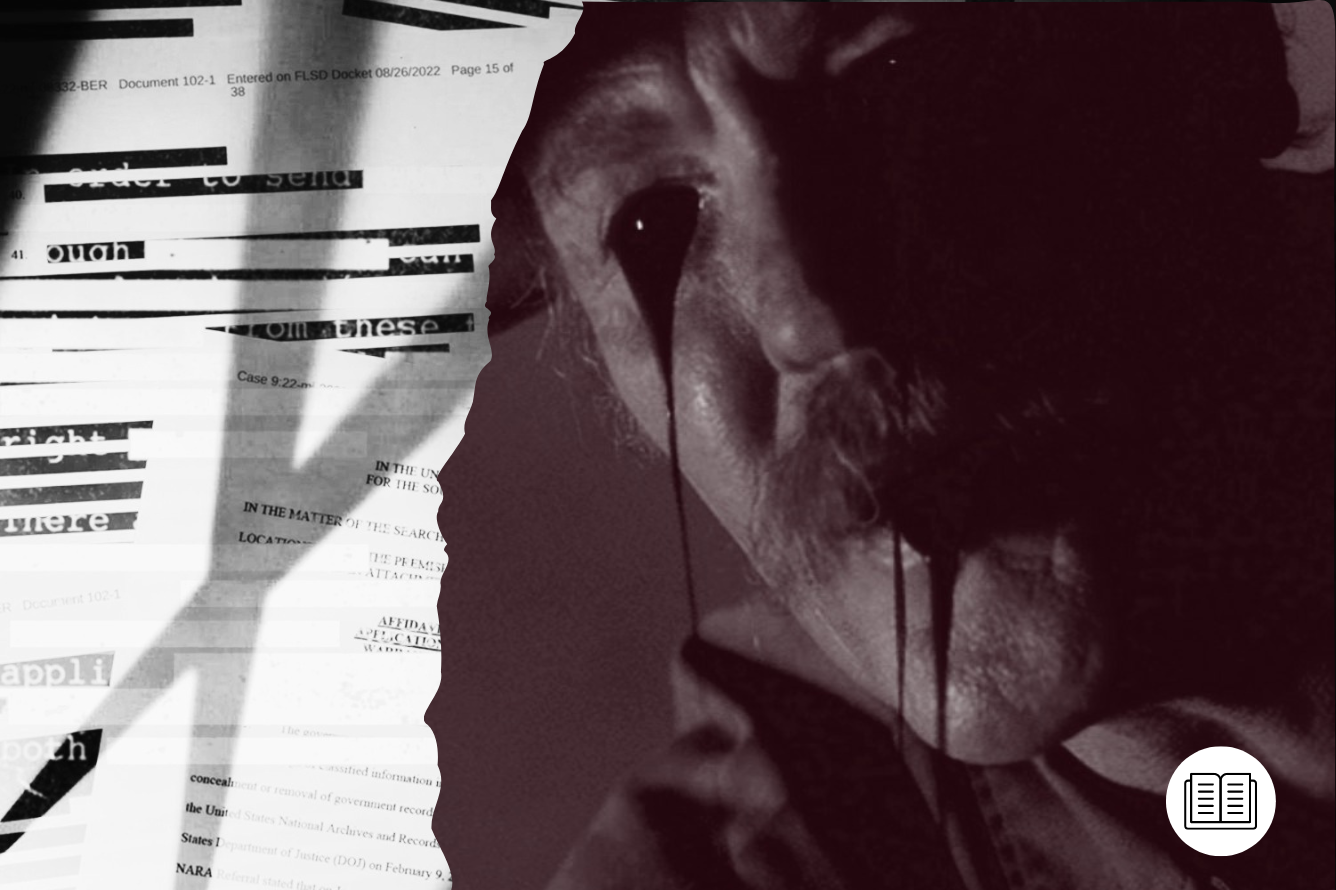Inspired to try screenwriting after watching Raiders of the Lost Ark (1981) six times in six days while working as a journalist at a surfing magazine, when he was eventually able to break into the industry, the first few pieces of screenwriting work the future X-Files creator got were comedies.
The 1986 Disney TV movie The B.R.A.T Patrol, starring a post-Goonies Sean Astin, was followed in 1988 by the slobs-versus-snobs tale Meet The Munceys. He worked for a while on Rags to Riches, a musical comedy series in which a millionaire rock star adopted six girls, leading inevitably to hijinks. His next gig was Brand New Life, a 1989 Brady Bunch-like sitcom starring I Dream Of Jeannie’s Barbara Eden as a mother of three who marries a Bel-Air millionaire with three kids of his own
When he got a chance to develop his own show, he was keen to leave comedy behind — and, one can only assume, to come up with a format that didn’t revolve around six children. 1974’s Kolchak: The Night Stalker and 1959’s The Twilight Zone were his two tonal go-tos in describing what his show, The X-Files, would become. While The Twilight Zone had humor marbled through it here and there — what is ‘To Serve Man’ if not the punchline to a lengthily drawn-out gag? — Kolchak was a jet-black, mirth-free zone.
How The X-Files Dabbled in Comedy
With his core cast — David Duchovny as Fox Mulder and Gillian Anderson as Dana Scully — Carter launched The X-Files. In the early years of the show, when the most attention was being paid to it, the central pair’s incredible comic timing was naturally overshadowed by other things: their striking good looks and palpable sexual chemistry arguably changed fandom forever, codifying the idea of ‘shipping’, while the show’s deep-from-the-getgo mythology and central mystery were what got it endless press and made the show’s title enter the public lexicon.
But even from the beginning, there were jokes. Mulder and Scully’s relationship is, from the beginning, laden with humor. Speaking to NPR, Duchovny described Mulder and Scully as “two characters who were complementary to one another, and kind of completed one another in the romantic comedy sense.” Even more tense scenes would have some kind of jokes to them though, like Mulder’s plea when investigating a crime scene in The X-Files episode ‘Squeeze’ (S1, Ep3): “Is there any way I can get [this] off my fingers quickly without betraying my cool exterior?”

Over the first few years, the humor became more and more a part of the show, with Carter himself saying, “I didn’t understand what the range of the show could be or was until I think the second season and into the third season. I think when you look at shows like ‘Clyde Bruckman’s Final Repose’ [S3, Ep4], when you look at episodes like ‘Home’ [S4, Ep2] or ‘Squeeze’ [S1, Ep3] or ‘War of the Coprophages’ [S3, Ep12], or ‘Humbug’ [S2, Ep20] that you see the range, not just of the stories you tell, but the range of the actors, and their comedic ability was great.”
Duchovny and Anderson both excelled at deadpan humor, and the Lone Gunmen were brought in as a regular source of more broad comic relief, but increasingly the show’s forays into full-on jokes were the ones that stuck with people. While a great many writers contributed hilarious moments to the show, there is a name that immediately jumps to any fan’s mind discussing The X-Files and comedy: Darin Morgan.
The Influence of Darin Morgan and Vince Gilligan
“I think humor releases tension, and in the thriller genre you can release tension through character and character comedy,” Carter told the Television Academy Foundation. “I think there was always light comedy in every episode because it was the nature of Mulder and Scully’s relationship with one another, but I think that the comedic episodes, particularly the ones by Darin Morgan, were brilliant comedies in their own right. So while you had light comedy throughout the series, the comedic episodes were some of the most memorable we’ve ever done.”
Darin Morgan — brother of half of the Glen Morgan/James Wong writing partnership that had been on the show since the beginning, writing the first monster-of-the-week episode (‘Squeeze’, introducing the world to Eugene Victor Tooms) — had a less than illustrious introduction to working on The X-Files. In his first episode, ‘The Host’ (S2, Ep2), he was an actor rather than a writer, spending 20-hour days in a rubber suit as the sewer-dwelling Flukeman.
He helped work on the episode ‘Blood’ (S2, Ep3), and was offered a staff role, which he considered turning down, seeing himself first and foremost as a comedy writer. However, later in that show his debut episode as a writer aired. ‘Humbug’ (S2, Ep20) is a contender for the first full-on comedy episode of the show, set in a retirement community for sideshow performers and guest-starring Vincent Schiavelli and several members of the Jim Rose Circus.

Morgan went on to write three episodes of The X-Files Season 3 — ‘Clyde Bruckman’s Final Repose’ (S3, Ep4), ‘War of the Coprophages’ (S3, Ep12), and ‘Jose Chung’s From Outer Space’ (S3, Ep20) — that were full-on laugh riots, from unexpected gameshow-host cameos to short-shorted doctors named Bambi (Bobby Philips). Morgan continued to work on the show as a story editor, before moving on to other shows, although he returned to deliver a terrific, hilarious performance in Season 4’s ‘Small Potatoes’ (S4, Ep20). That episode also features an incredibly funny turn by Duchovny, playing Morgan’s character shapeshifted into Mulder’s form — a “damn good-looking man” but a very clumsy one.

The other key addition to The X-Files show in terms of comedy was someone whose later achievements arguably overshadowed how well he could craft a gag. Vince Gilligan — who would of course go on to create Breaking Bad, itself a frequently laugh-out-loud show — had already written the Drew Barrymore comedy Home Fries (1998) but made his X-Files debut with the straight horror episode ‘Soft Light’ (S2, Ep23). It was only later that he slowly began to bring in funnier and funnier elements.
“What happened is that after season three, there was a tendency to make the standalone episodes lighter, and sometimes we would go for comedy rather than a scare, and sometimes we’d go for silliness rather than the sort of tension-filled episodes,” said Carter later. “It was just the way that it happened, and a feature of the people who worked on the show at that time. Vince Gilligan, who has a wonderful light touch and a real way with comedy, was responsible for a lot of the standalone episodes at that point. There are episodes like ‘Bad Blood’ (S5, Ep12), which are classic episodes, but they’re light.”

‘Bad Blood’ (not to be confused with the aforementioned Blood) is, of course, the episode with the daftest, most gleeful gag in X-Files history, in which a Rashomon-style multiple retelling of events leads to Luke Wilson’s handsome smalltown sheriff having, in Mulder’s retelling, joke-shop buck teeth. It’s broad as hell and absolutely hilarious.
The X-Files Loosens Up over Season 6 and 7
There is a bit of a rule in traditional sitcom writing where everything returns to the status quo at the end of an episode. Whatever lessons may have been learned, whatever bonds may have been forged, all get basically forgotten by the next time. The X-Files’ standalone monster-of-the-week episodes largely followed a similar kind of mechanic. Scully gets a tattoo that is never mentioned again. Mulder has sex with a vampire and somehow isn’t haunted by it or anything. They both witness untold madness, kill umpteen supernatural baddies without consequence and just press on, Scully’s skepticism returning within a week of meeting a ghost.
This period, arguably the peak years of the show, also made a huge impact on a generation of fans who went on to work in comedy. Spaced creators Simon Pegg and Jessica Stevenson were enormous fans (and occasionally did a pub quiz with Gillian Anderson when she was in London) with Stevenson doing a note-perfect Scully impersonation. Saturday Night Live’s Kate McKinnon had Scully as her Halloween costume go-to. A pre-Oscar Kumail Nanjiani had an X-Files podcast, The X-Files Files. (When Nanjiani guest-starred on the show in the revived Season 10, he was nervous to join something he was such a huge fan of, saying: “It’s like being in love with a gorgeous woman for 20 years. And then, when you finally go out with her, you end up murdering her.”) Much as The Scully Effect is a documented phenomenon, of women inspired by the character gravitating towards STEM subjects, it’s no accident that the most intelligent show of the time drew in a fanbase laden with creative, funny, talented individuals.

And just as The X-Files irreversibly changed fandom, it also couldn’t help but be influenced by it. The producers often cited Moonlighting — and the perceived decline in quality of that show after the two lead characters got together — as an influence on the Mulder-Scully relationship and their efforts to keep the pair apart. Any show that comfortably straddles as many genres as The X-Files has to be made by extraordinarily genre-savvy creators, which lends itself to a lot of comedy. Season 6 has Duchovny and This Is Spinal Tap’s Michael McKean doing a Duck Soup dance in a mirror (‘Dreamland’ – S6, Ep4). Season 7’s ‘X-Cops’ (S7, Ep12) is a pitch-perfect satire of reality television with some great gags, and cheerfully casual bleeped swearing, while ‘Hollywood A.D’ (S7, Ep19), which is written and directed by Duchovny, is wall-to-wall in-jokes, including the casting of Duchovny’s then-wife Téa Leoni and Garry Shandling — star of The Larry Sanders Show, on which Duchovny played a hilarious version of himself with an unquenchable crush on Shandling’s character — as themselves. The Lone Gunmen’s final episode, in Season 9, is called ‘Jump The Shark’ (S9, Ep15), a nod to perhaps the best-known trope in all fandom.

While Carter began his career frustrated by the sitcom pigeonhole he found himself in, by the end of the show’s original run all bets were off. Two of Vince Gilligan’s later episodes took as their primary influences shows that would once have felt like millstones around Chris Carter’s neck. ‘Je Souhaite’ (S7, Ep21) carried a clear influence from I Dream of Jeannie, which of course starred Carter’s old colleague Barbara Eden. Gilligan’s final episode of the original run, ‘Sunshine Days’ (S9, Ep18), is based around the sitcom The Brady Bunch — much like another of Cater’s early jobs — and its trope-naming character Cousin Oliver (a younger character brought in to join an established show, with unsuccessful results — hey, who remembers Scully’s son William?).
Comedy in The X-Files Season 10 and 11
By the time The X-Files Seasons 10 and 11 were announced, after a 14-year hiatus, comedy was at the forefront, or at least a major part of the pitch. Prior to the show’s 2016 revival, Duchovny told NPR: “The frame of The X-Files, which started out as a pretty much straight-ahead thriller/mystery/horror genre science-fiction show, kind of started to mold and get more flexible as writers like Glen Morgan and James Wong and then Vince [Gilligan] and then Darin Morgan took it into a more comedic area, sometimes into a more horror area.”
While the beginning of the show was as mythology-forward as it could be, the revival had its Darin Morgan-penned episodes pushed front and center as a massive selling point. The episodes that got the most attention by far were his – ‘Mulder and Scully Meet the Were-Monster’ (S10, Ep3) and ‘Lost Art of Forehead Sweat’ (S11, Ep4).

Sure, part of this was that the mythology had become so convoluted that the idea of any kind of neat answers seemed absurd. But another huge part of it was that the two main stars were simply so well-known as being hilarious. Outside The X-Files, most of Duchovny’s most celebrated work has been comedic. His guest appearances on The Larry Sanders Show are among that series’ highlights, while his work in Californication got him a second Golden Globe to sit alongside his X-Files one. The movies Evolution (2001), Zoolander (2001), and The Bubble (2022) played with his leading-man alpha-ness, while he built a second career as a comic novelist. Anderson has had a varied career across stage and screen, effortlessly moving between TV crime dramas, Hollywood, and the West End, swapping accents as necessary, and being consistently fantastic.
Arguably, both of their highest-profile post-X-Files roles have been the ones that balanced their comedy chops with, yes, their ridiculous good-lookingness — Duchovny in Californication and Anderson in Sex Education. Unlike The X-Files, these shows were developed with their stars’ comic skills fully involved from the outset.
While Gillian Anderson is wholeheartedly over The X-Files, insisting she is completely finished with it, Carter might not be finished in the world. The X-Files: Albuquerque is currently under development, an animated comedy spin-off along the lines of Star Trek: Lower Decks, following a lower-tier team of investigators. Bearing in mind Carter’s original vision for the series, the very idea of an animated series would have seemed absurd — Kolchak: The Night Stalker didn’t have a funny cartoon spinoff, after all — but after nearly 30 years of high-stakes paranormal hilarity, complete with shapeshifting plumbers, buck-toothed vampires, and deadly cockroaches, it all makes perfect sense.
This article was first published on June 23rd, 2022, on the original Companion website.
The cost of your membership has allowed us to mentor new writers and allowed us to reflect the diversity of voices within fandom. None of this is possible without you. Thank you. 🙂









